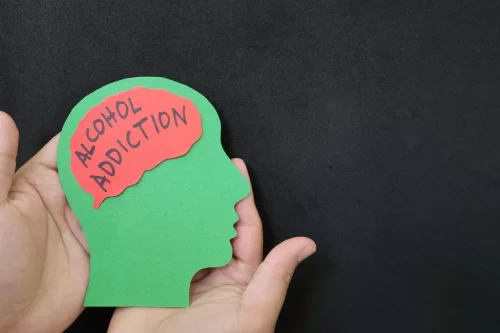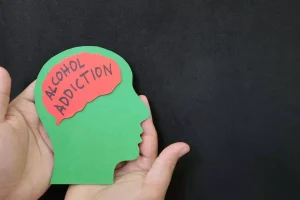
With alcohol advertisements plastered in the media, many teens think drinking is acceptable. Some teens have the mindset that they’ll gain more friends by drinking. Unfortunately, experimenting with alcohol rarely stops after one occasion – it’s usually a snowball effect that how to recognize signs and symptoms of alcoholism and alcohol abuse becomes unmanageable.
Is It Safe to Take Ozempic if You Have Depression?

If you or someone you love is worried about hepatitis and alcohol, you’re not alone — and there’s hope on the horizon. It can be beneficial to work with a social worker who is experienced in managing alcohol-related dementia and who can guide you and provide you with advice, support, and resources as you cope with this condition. Not everybody who consumes excessive amounts of alcohol for long periods of time develops dementia. However, there is no way to predict whether a person who consumes large amounts of alcohol will develop alcohol-related dementia or not.
If your loved one needs help
- One tool is known as CAGE – a questionnaire that measures the severity of a drinking problem.
- If any of this sounds familiar, Oar Health might be right for you.
- They might give up activities, interests, and responsibilities to maintain their habit.
- You may also find value in joining a support group for people who are living with alcohol-related dementia or for caregivers so that you can meet with others who are coping with the same life stressors as you are.
- To get started, your healthcare provider or an addiction specialist can evaluate drinking patterns.
Severity is based on the number of criteria a person meets based on their symptoms—mild (two to three criteria), moderate (four to five criteria), or severe (six or more criteria). You care about your loved ones, but you can’t imagine your life without alcohol. Your drinking has led to trouble with your family or friends, or made problems worse, yet you continue to drink. This doesn’t make you a bad person, but it does make it more urgent that you look for help to change your habits and get your relationships back on track. In 2014, roughly 16.3 million adults in the U.S. had an alcohol use disorder (AUD).
What is a Functioning Alcoholic & What are the Risks?
Some may even develop opioid use disorder after misusing prescribed opioids. UAB experts provide insight into alcohol and substance misuse, dangers and steps one can take to minimize the risk. The misuse of alcohol and other psychoactive substances including prescription medications affects the health and well-being of millions of Americans each year. Even if you feel well during your waking hours, your sleep patterns could also offer a clue that you’re drinking too much alcohol. People with an alcohol use disorder can be secretive about their drinking, and may become angry if confronted.

Alcohol use disorder is a pattern of alcohol use that involves problems controlling your drinking, being preoccupied with alcohol or continuing to use alcohol even when it causes problems. This disorder also involves having to drink more to get the same effect or having withdrawal symptoms when you rapidly decrease or stop drinking. Alcohol use disorder includes a level of drinking that’s sometimes called alcoholism. We focus on alcohol use disorder, offering personalized care that fits seamlessly into your life. With Oar Health, you’ll find expert guidance and a daily pill that can help you drink less — or quit, if that’s your goal — so you can reclaim the best version of yourself that already lives within you. You should discuss your intentions with your healthcare provider, who can work with you to help plan your next steps toward recovery.
The two manuals use similar but not identical nomenclature to classify alcohol problems. If you think you may be drinking too much, it can feel daunting to ask for help. One of the clearest signs that you’re drinking too much alcohol is that you struggle to stop, indicating a lack of control over your actions. “Engaging in dangerous activities such as driving under the influence, getting into fights, or unsafe sexual behavior while intoxicated” are all signs that you’re drinking too much, Volpicelli says. A health care provider might ask the following questions to assess a person’s symptoms.
- If you have a concern that you have AUD, you can see a health professional for consultation.
- If you suspect that you or someone you care about has an AUD, it may be time to seek professional help.
- Call our Alcohol Detox Hotline at all calls are 100% confidential.
- Following detox, you may be encouraged to transition into either an inpatient or outpatient rehabilitation program for longer-term recovery work.
Don’t feel bad, but do consider cutting back on drinking — or quitting altogether. The more things you said “yes” to, the more important it is that you take action or seek help from a health professional. Maybe you’ve been concerned enough that you’ve already thought about or actually tried to cut down on your drinking — and it didn’t happen.

What Is Alcoholic Hepatitis?

With all alcoholic beverages, drinking while driving, operating an aircraft or heavy machinery increases the risk of an accident; many countries have penalties for drunk driving. Mutual-support groups provide drug addiction treatment peer support for stopping or reducing drinking. Group meetings are available in most communities at low or no cost, and at convenient times and locations—including an increasing presence online.
How does alcohol abuse affect mental health?
As part of a medical detox and alcohol withdrawal management, certain medications may be used to decrease the severity of symptoms and decrease the risk of complications. If you or a loved one is exhibiting signs of alcoholism, it’s crucial to seek professional help. Evoke Wellness at Coconut Creek offers comprehensive alcohol addiction treatment programs, including residential and outpatient options, tailored to individual needs. Their team utilizes evidence-based therapies like cognitive-behavioral therapy and holistic approaches to support lasting recovery.
Risk factors for drinking problems and alcoholism

This puts immense strain on vital organs and can manifest in several concerning ways. The consequences of alcohol addiction are irreversible, with some leading to death. They leave lasting effects and add to the financial and social burdens of alcoholism. Recognizing the early signs and risk factors for AUD can help you seek early treatment and intervention to break alcohol misuse patterns. For some people, alcohol misuse results from psychological or https://ecosoberhouse.com/ social factors. Others use alcohol to cope with psychological issues or stress in their daily lives.

Recent Comments